25 Stories to share over a Cuppa
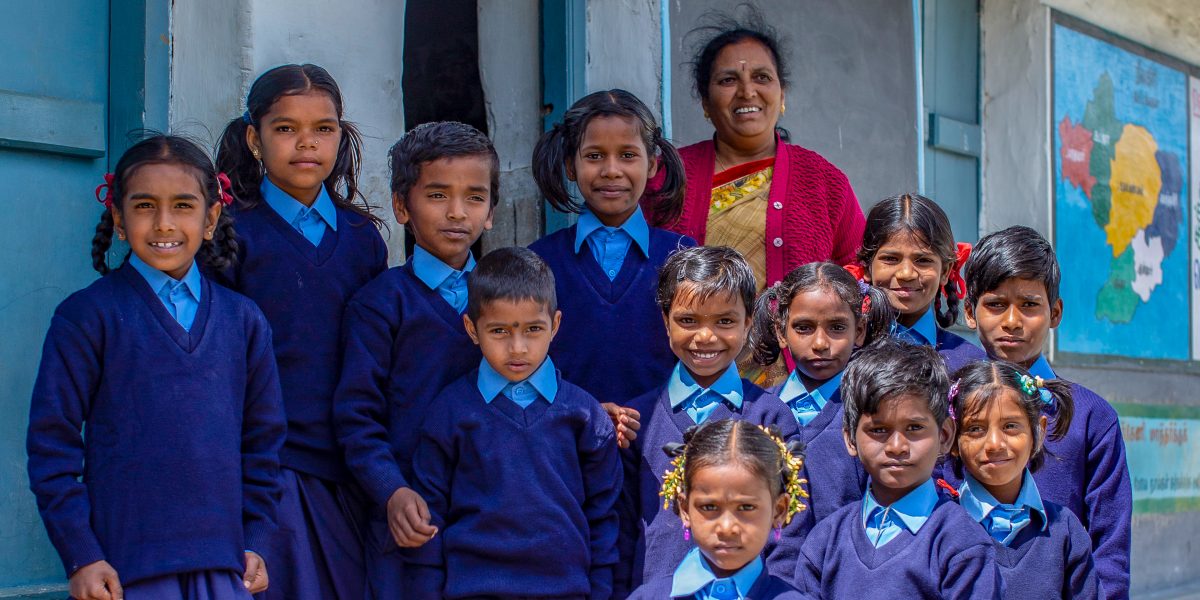
From vaccinations to school dinners, raincoats to cows, uniforms to stoves, here are 25 small stories which make a world of difference.
Thank you for helping to make every cup count.
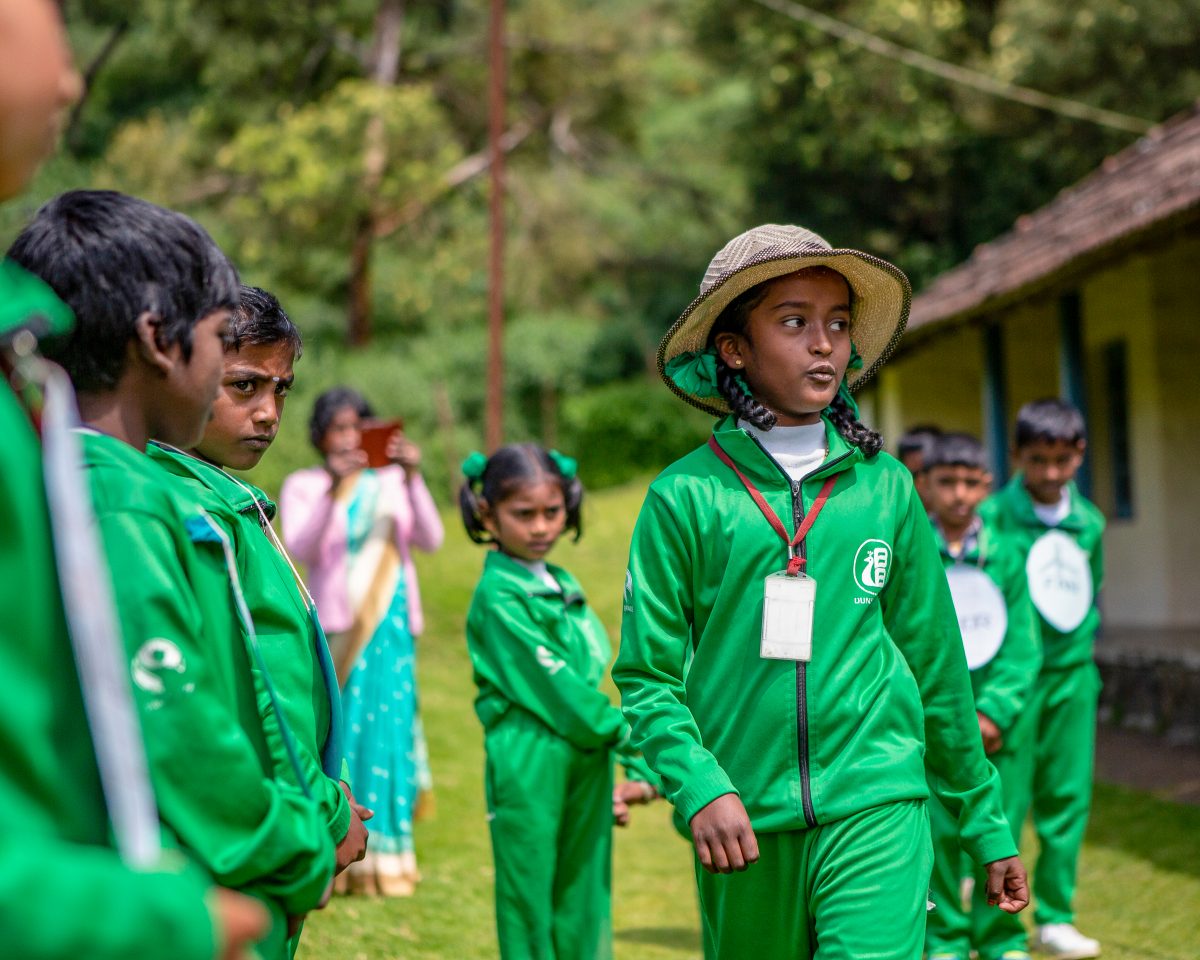
1. Tracksuits
At Dunsandle, workers have chosen to use the Fairtrade Premium to buy tracksuits for children at Dunsandle CSI Primary School, located on the estate. The tracksuits are important to the children and their families as they create an identity for the school and a sense of belonging. It’s a source of pride when they are representing the school in sporting events.
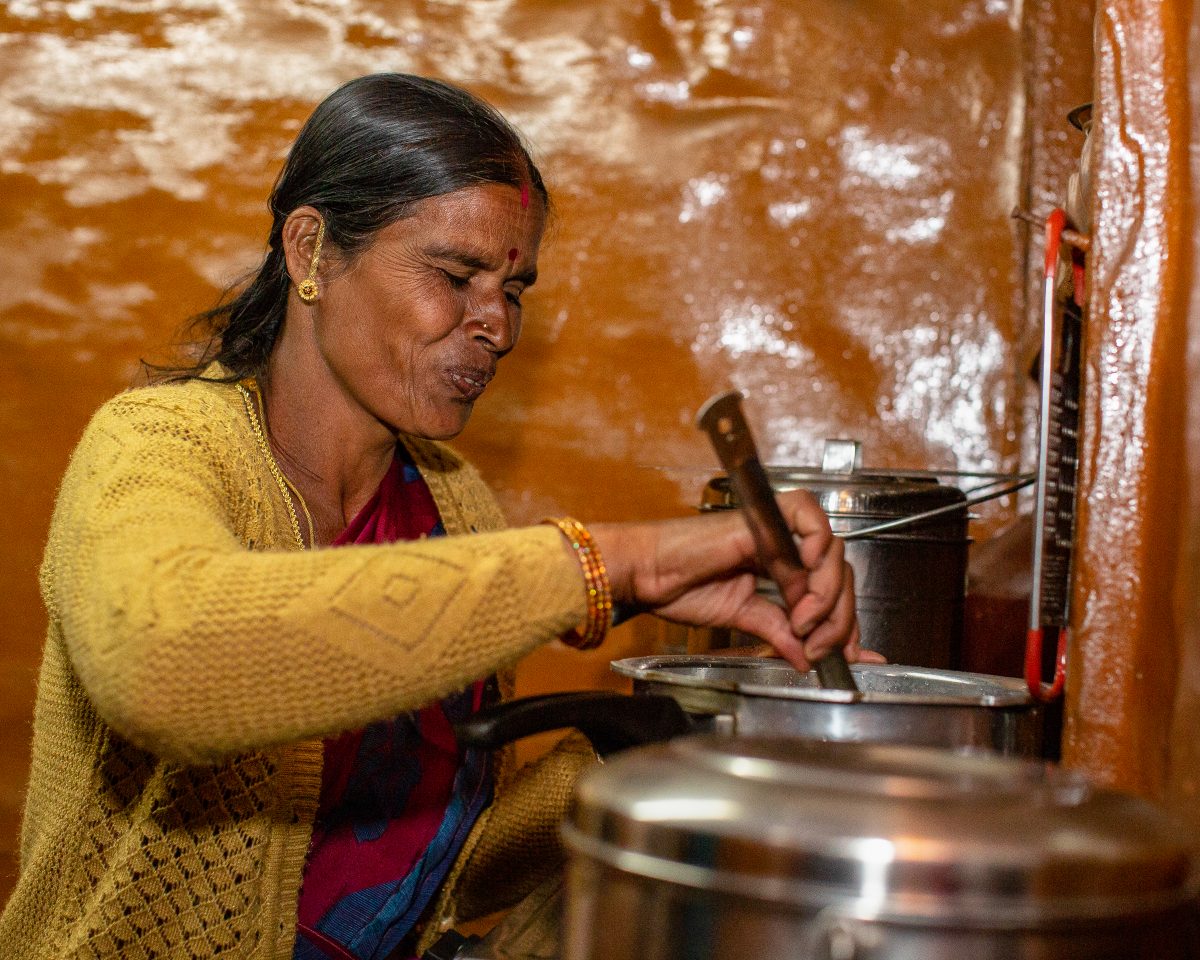
2. Kitchen equipment
At Dunsandle, workers have used the Fairtrade Premium to buy kitchen equipment such as pressure cookers, thermos flasks and blenders. These all save women time preparing food, reducing their workload and giving them more time for other activities.
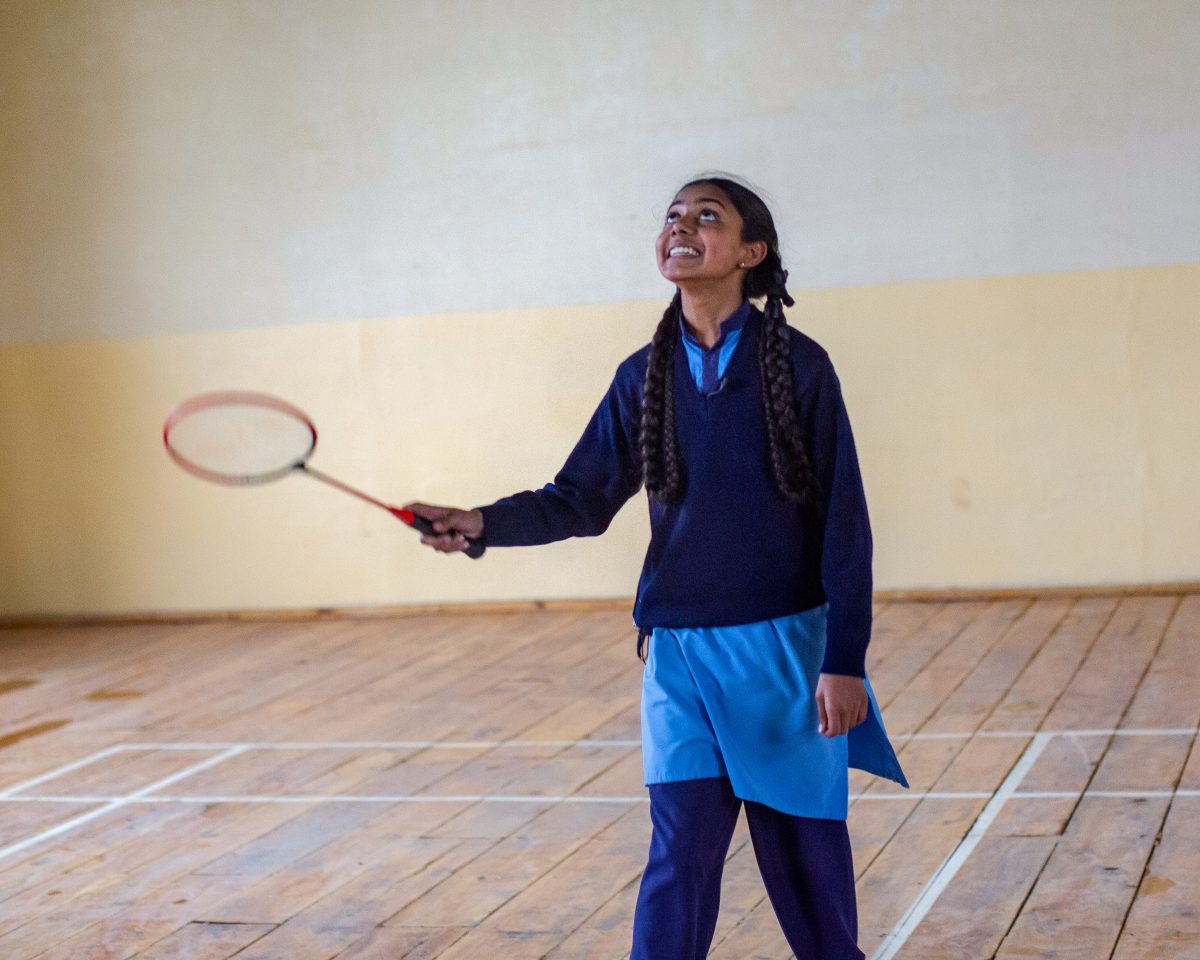
3. Games room
Workers from United Nilgiri have used their Fairtrade Premium to build and equip a spacious games room at the Sivasailam Chamraj Niketan School on Chamraj. The room has a badminton court, table tennis tables and lots of boards for Karom, a very popular game in India. The games room gives the children opportunities to try games they might not have been able to before. Pupils have gone on to represent the school in badminton and table tennis tournaments, building their confidence and instilling them with pride in their newly gained skills.
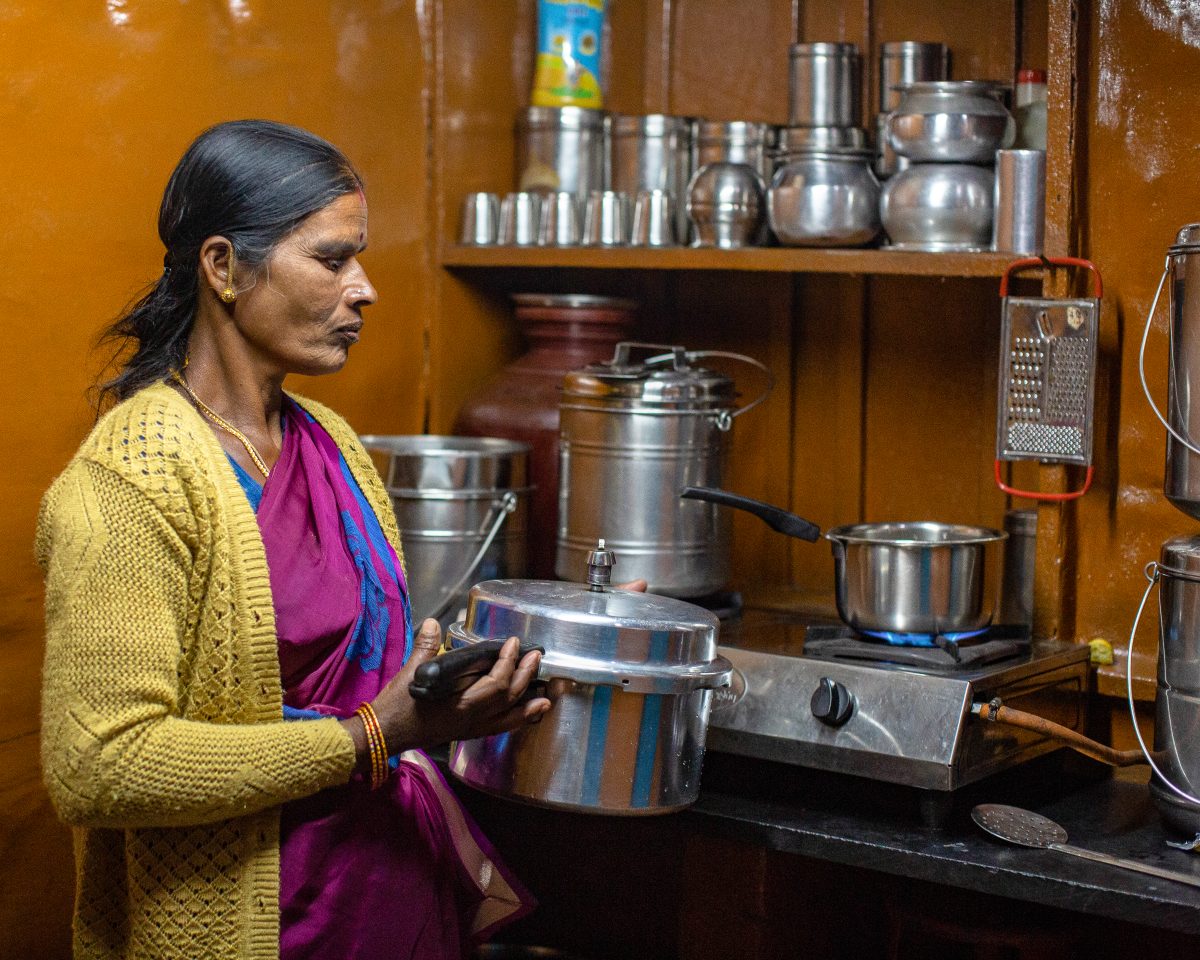
4. Gas stoves
Workers on Dunsandle have used their Fairtrade Premium to buy gas stoves. These have made a big difference to workers’ lives – particularly the women, who are often responsible for cooking for the family. Wood fires were previously the main method of cooking and this meant collecting wood from the surrounding forests. This was time consuming and also endangered the forests. Families were also breathing in smoke, which could cause health issues. By providing the gas stoves, the Fairtrade Premium Committee hope to save time, improve health and protect the surrounding forest.
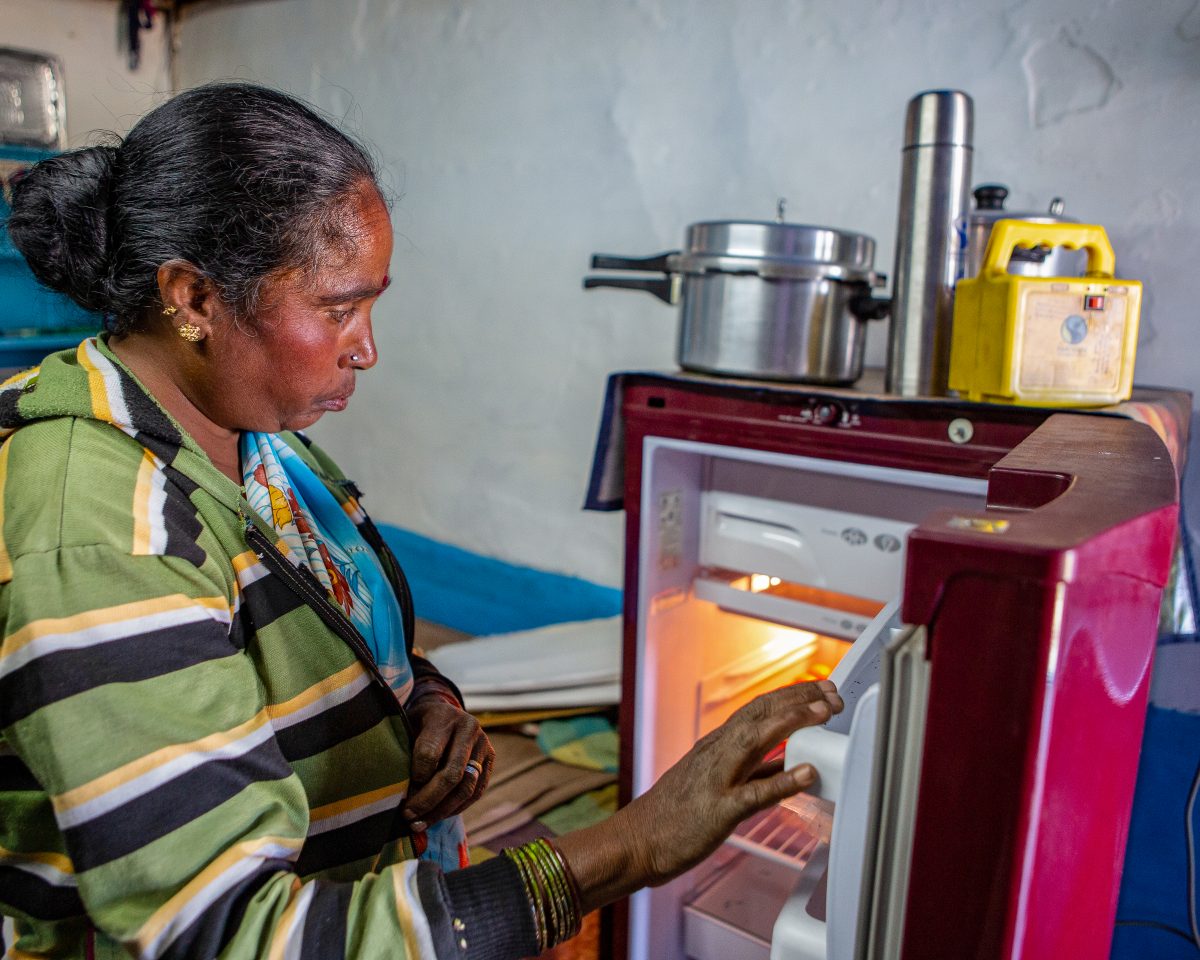
5. Fridges
Workers at Dunsandle decided to spend their Fairtrade Premium on providing fridges, which has made a difference to workers’ home lives. Before the fridges, they would travel to town every second or third day to buy fresh food. The fridges have reduced the amount of wasted food due to spoiling as workers are now able to prepare food in advance and keep it safely. Now, they only have to go to town once a week, saving them time and money. Fairtrade Premium Committee members said it saves them 200 INR per week. This is around two thirds of what they earn in a day, a substantial saving.
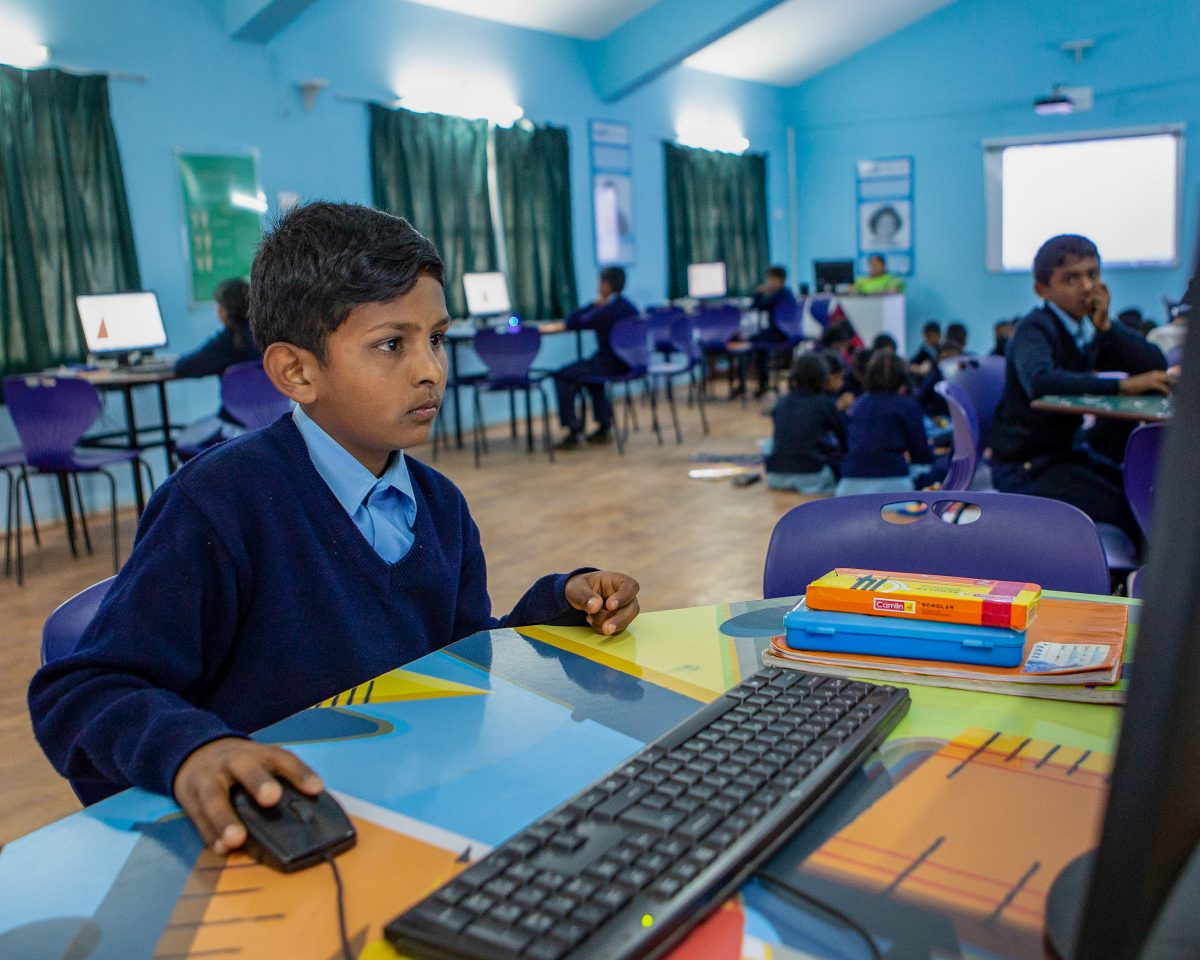
6. Computer lab
Workers at United Nilgiri chose to use Fairtrade Premium to buy computers at the Sivasailam Chamraj Niketan School so that the children can learn IT skills. Before this, there was one computer for every ten children. Now, there are enough computers for each child in a whole class.
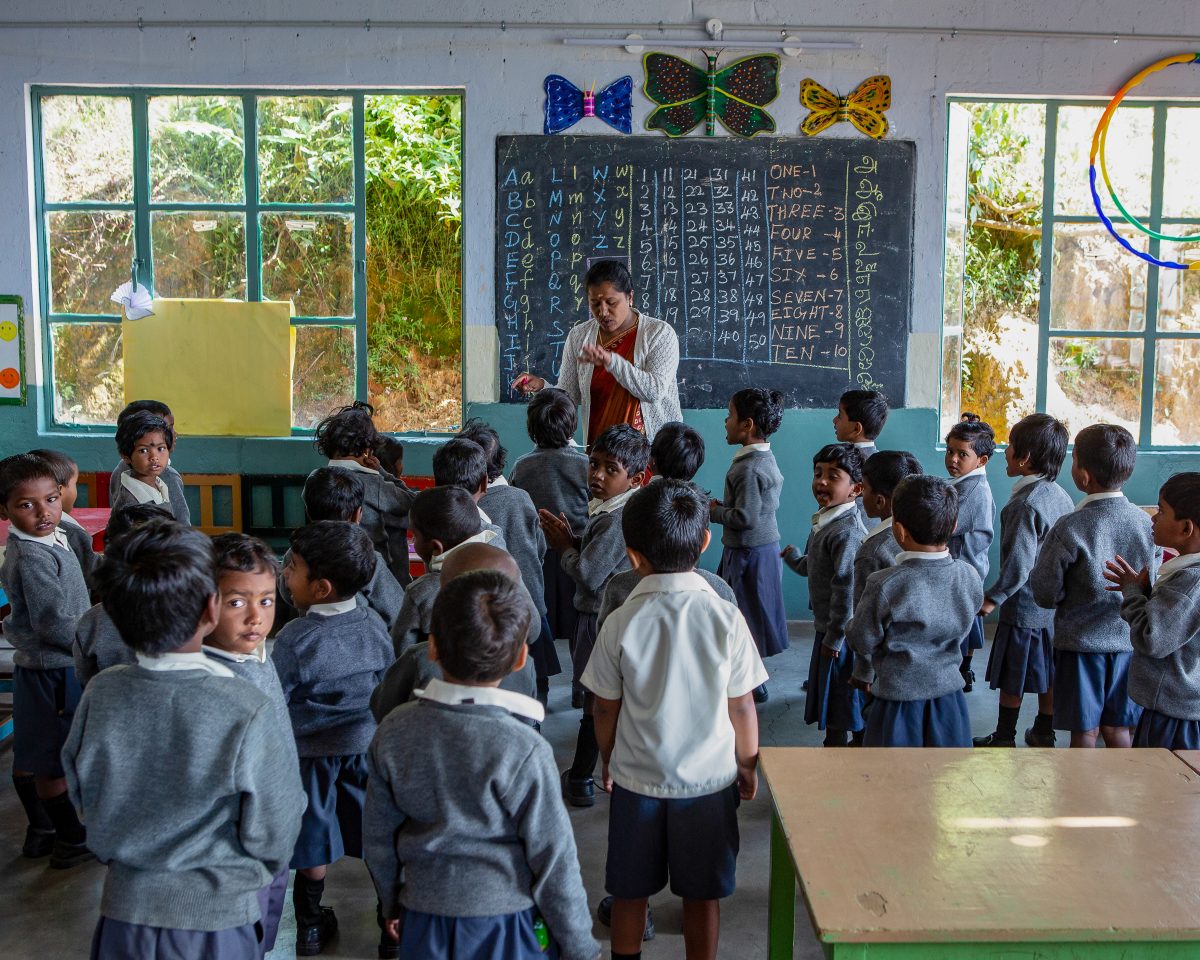
7. Hindi-Tamil teacher
Workers from United Nilgiri have used Fairtrade Premium to fund a Hindi-Tamil teacher at the Sivasailam Chamraj Niketan School. Around 60 percent of the workforce on Chamraj are from North India, where the native language is Hindi rather than Tamil. When the workers and their families first arrive, they are unable to speak Tamil and many of the children join the school on the estate. Mrs Ambal teaches these children to speak the local language, as well as how to read and write in Hindi. Because Mrs Ambal can speak both languages, she can also communicate with the parents.
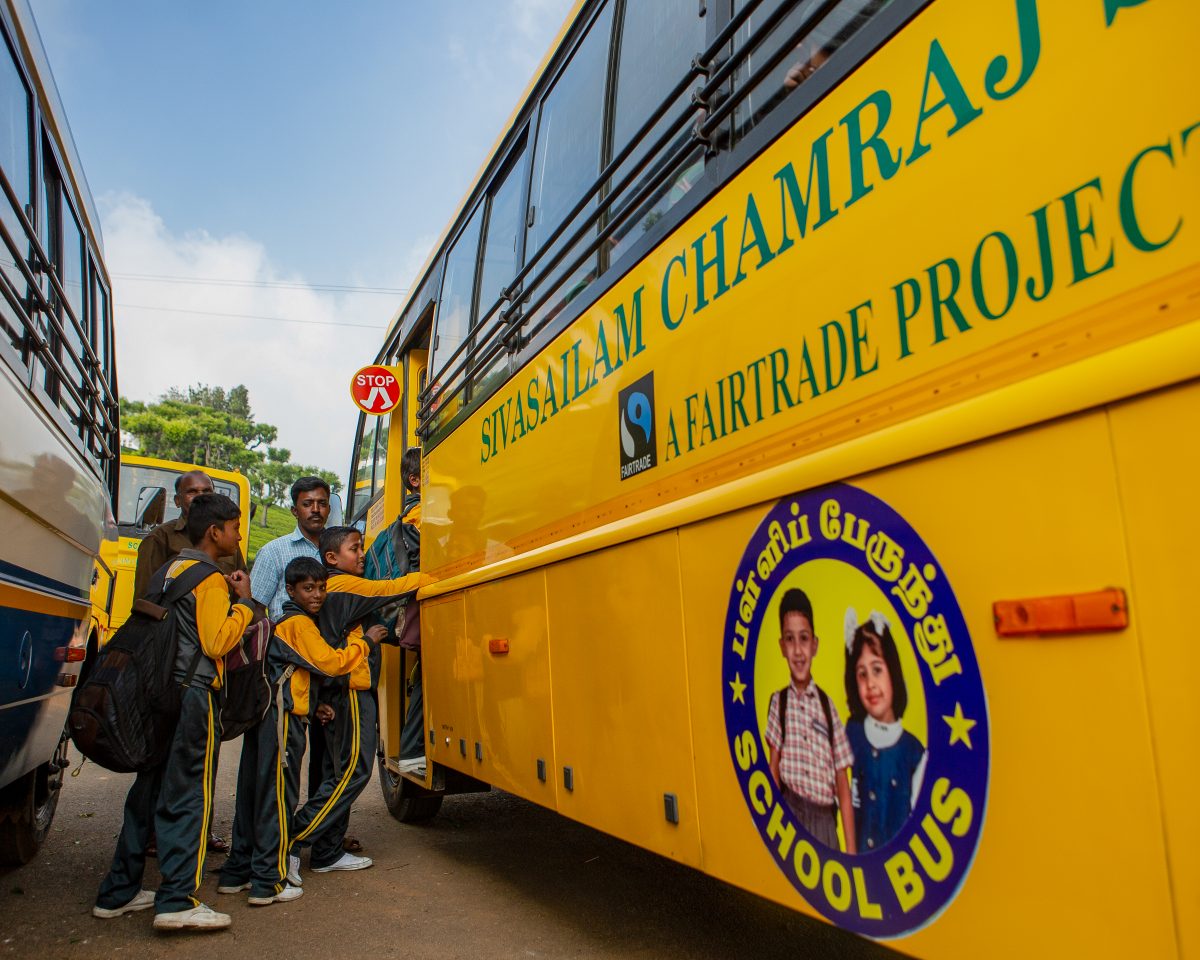
8. School bus
The Sivasailam Chamraj Niketan School, on Chamraj, has 1,200 pupils. Around 70 percent of these are the children of workers who live on the estate or at Korakundah, Chamraj’s sister estate 33km away. The remaining 30 percent of the children at the school live in surrounding villages. Workers have used the Fairtrade Premium to buy school buses to transport the children to and from school. This gives their parents peace of mind that the children are safe, but also opens up access to the school for those who would otherwise be too far away.
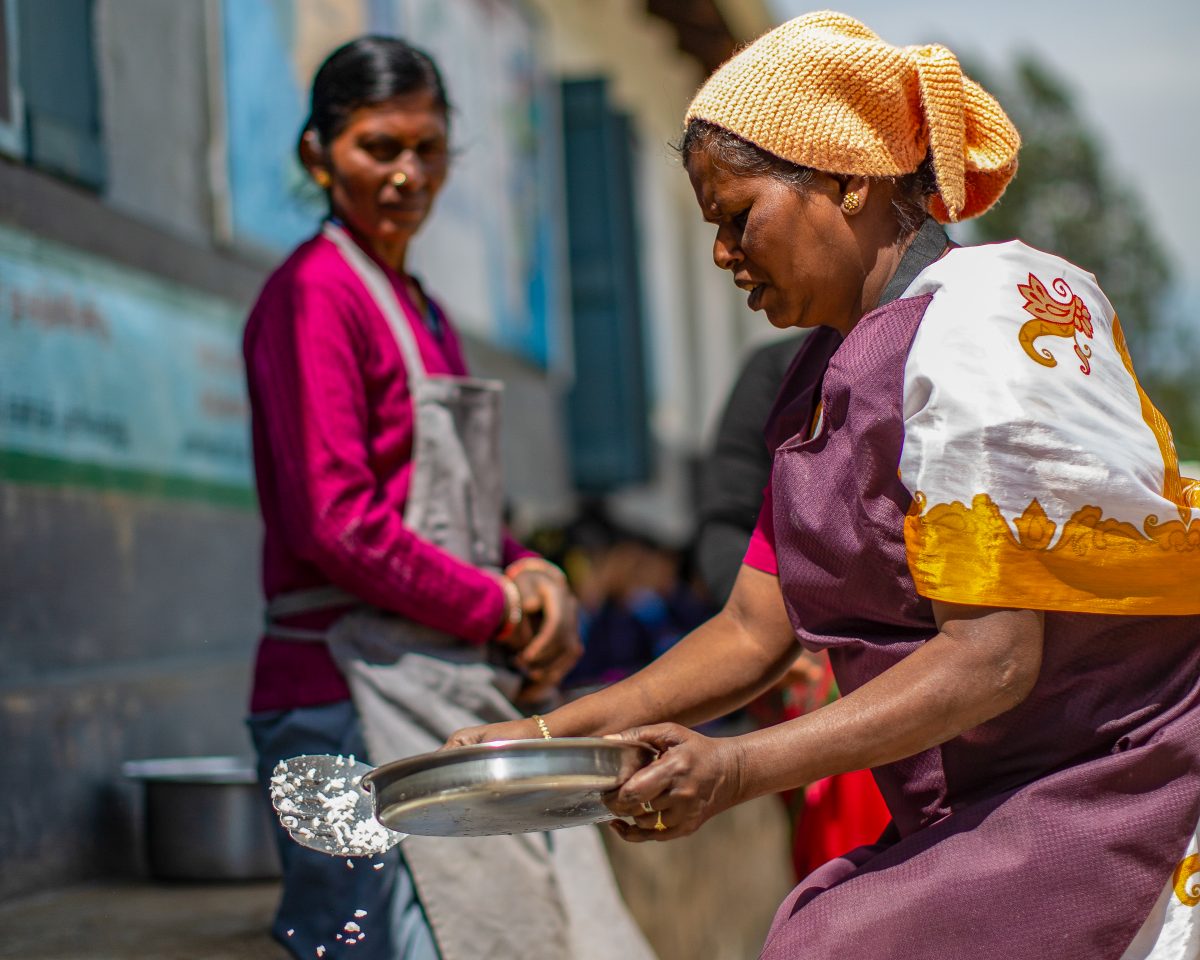
9. School kitchen
The Panchayat Union Primary School on Welbeck is required to provide a meal to its 20 children at lunchtime. In order to ensure the food the children eat is healthy and piping hot, the workers have used the Fairtrade Premium to build a kitchen on the school grounds.
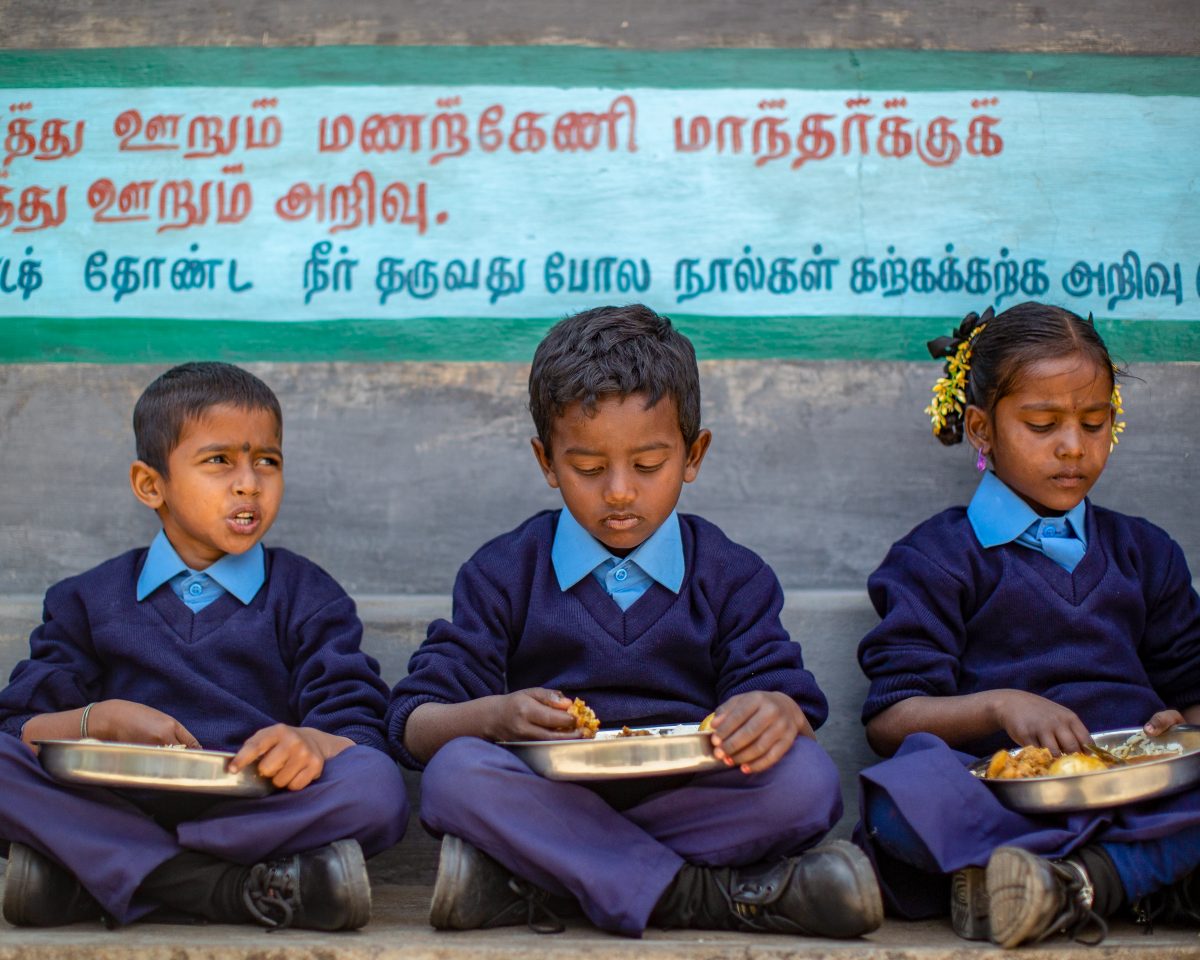
10. School meals
The children at the Panchayat Union Primary School on Welbeck are the children of workers on the estate. The school provides the children with a basic meal at lunchtime, while the Fairtrade Premium provides extra funding to ensure that those meals include chicken, fish, vegetables and eggs, ensuring that the children are getting the nutritious food they need.
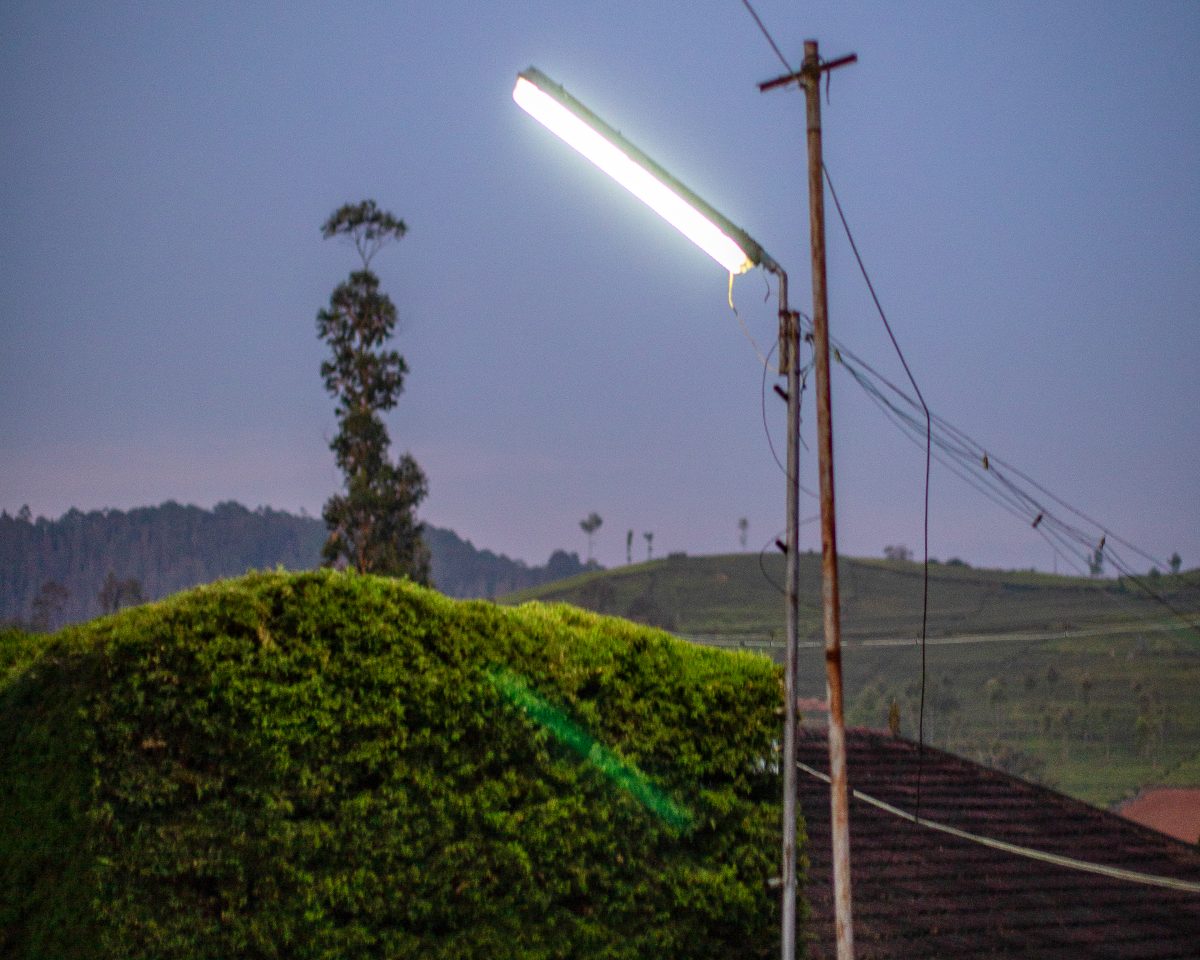
11. Solar-powered lights
At Welbeck, workers have used their Fairtrade Premium to pay for solar-powered lighting on the estate and the surrounding area leading to local communities. The surrounding reserve forests are full of wildlife, including monkeys, elephants and leopards. The lighting has helped to reduce the number of wildlife attacks and improved journeys to and from the estates.
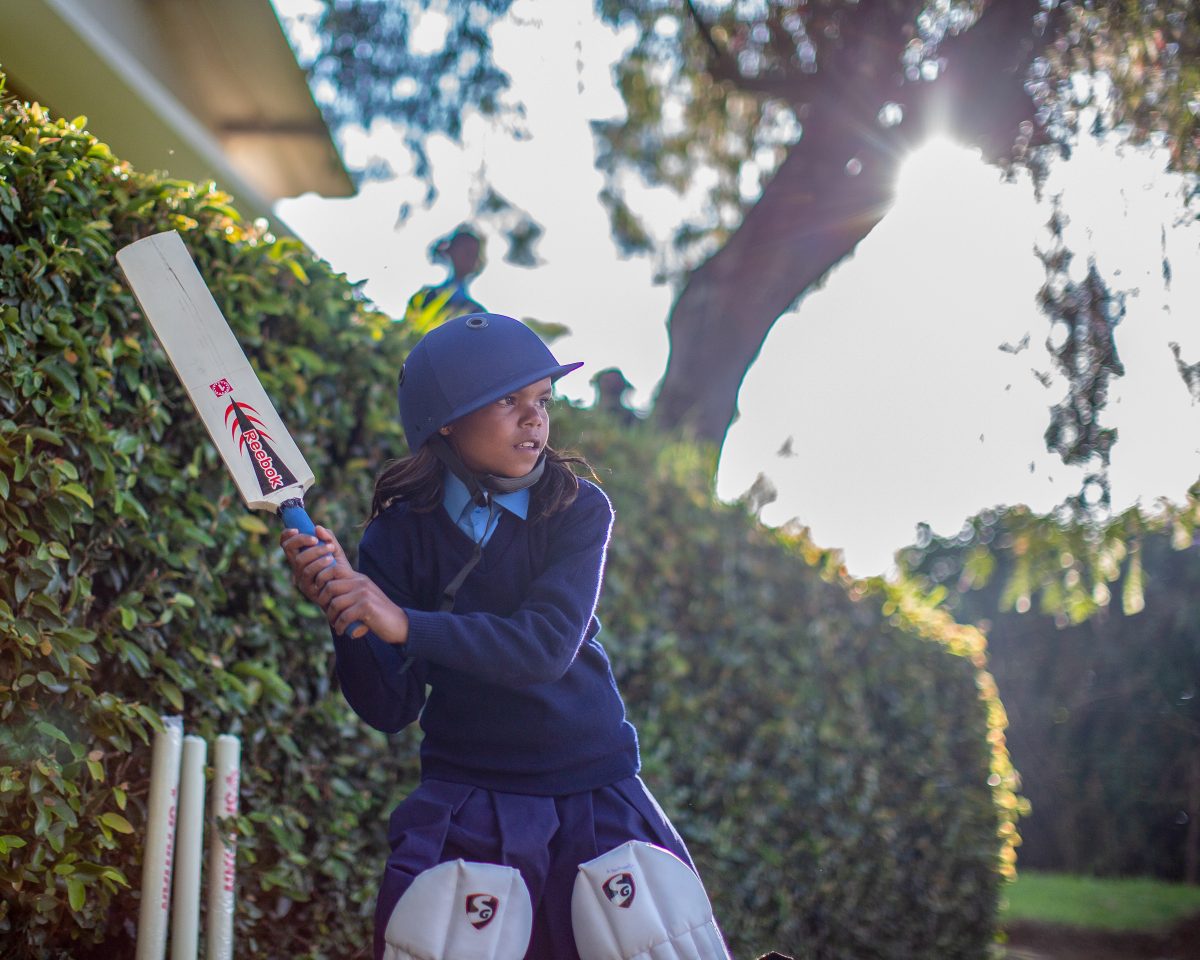
12. Cricket equipment
Cricket is incredibly popular with the pupils at the Panchayat Union Primary School on Welbeck, and the kit they use was paid for with Fairtrade Premium. With access to equipment, the children have the opportunity to take part in and learn cricket at school, and, most importantly, have fun!
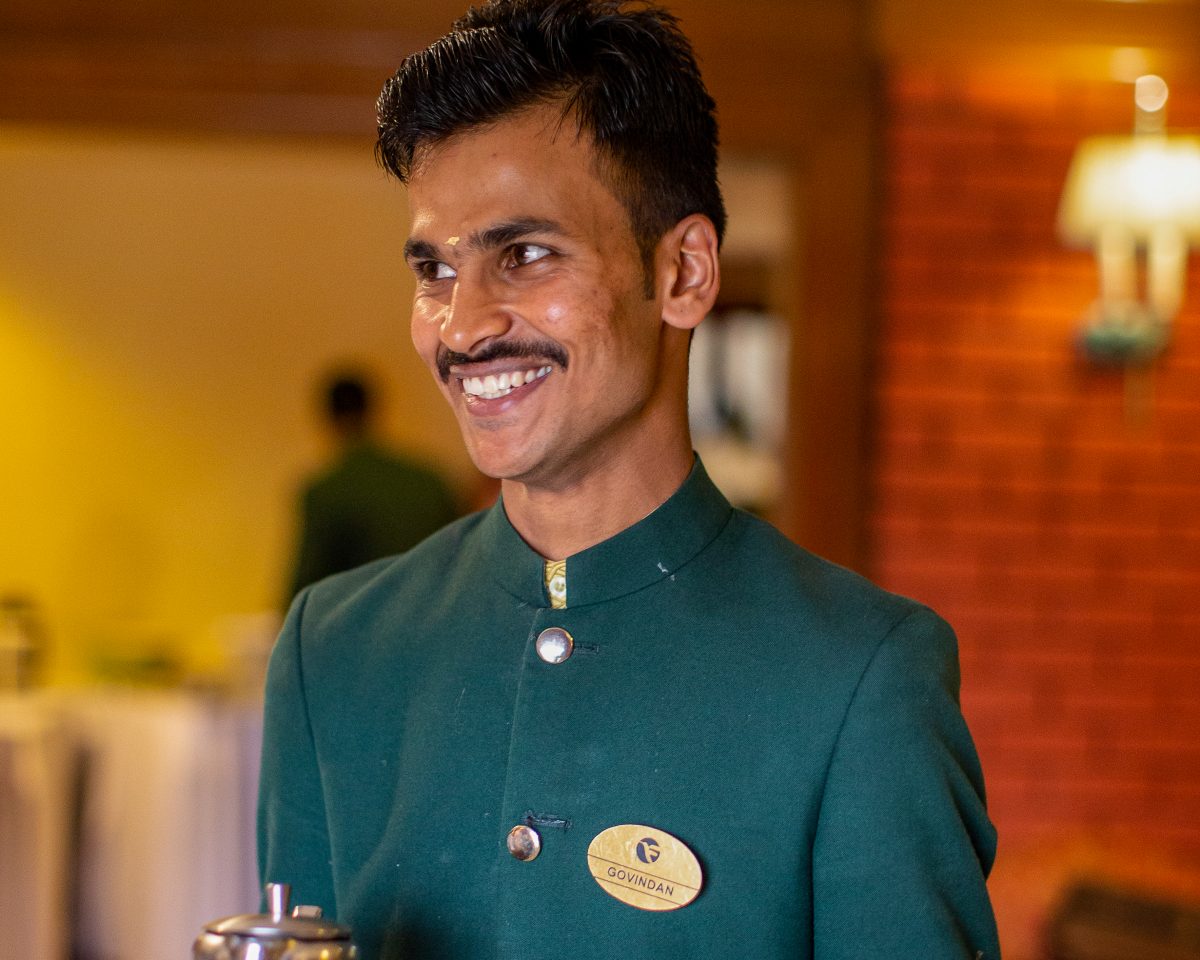
13. Bursaries
Education, and particularly the provision of bursaries for the children of United Nilgiri workers, is cited as one of the most important Fairtrade Premium projects for workers’ families. Bursaries available to workers’ children are up to 60,000 INR per year for professional courses such as engineering, veterinary science or nursing.
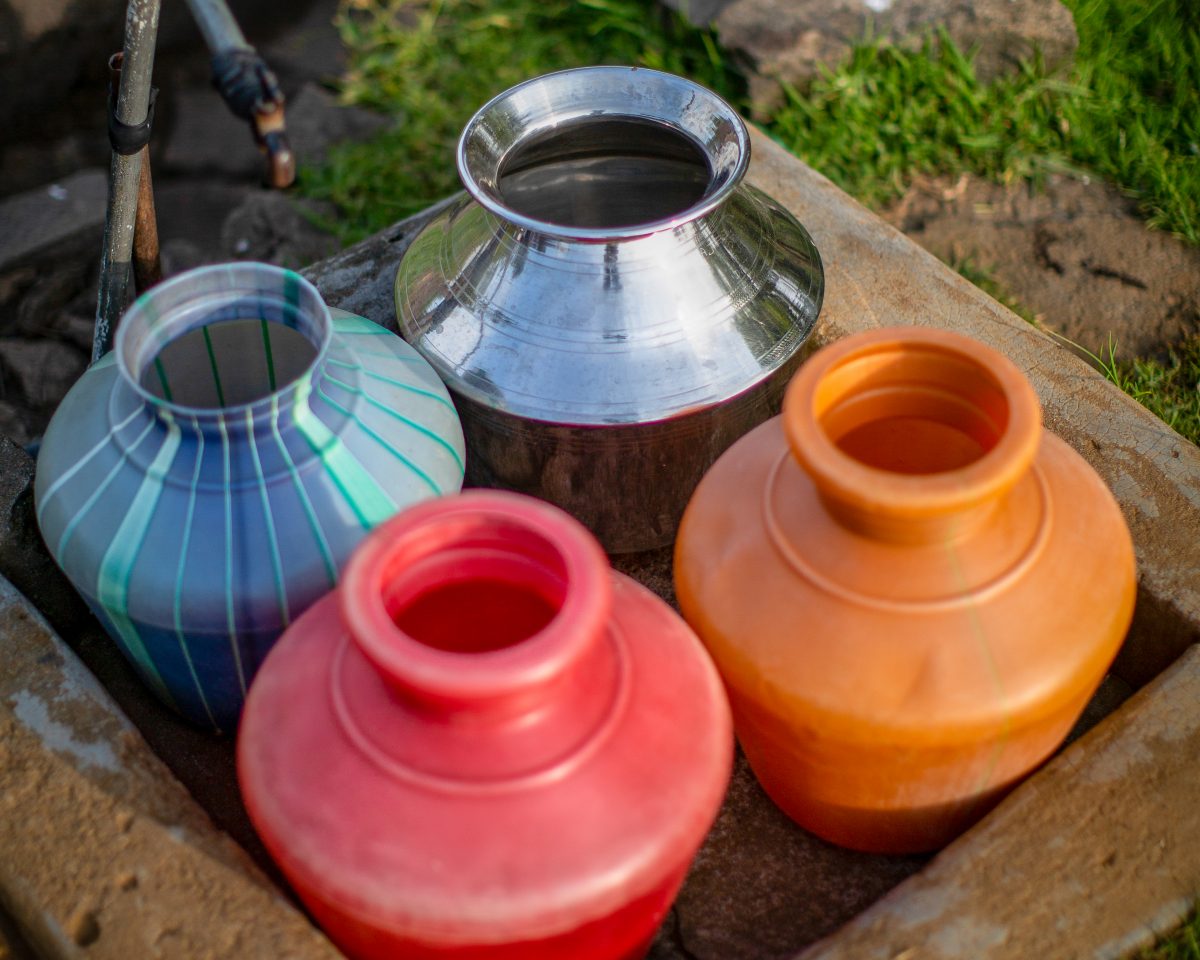
14. Water supply
Workers have used their Fairtrade Premium to fund the installation of piped water to the communities surrounding Chamraj (United Nilgiri). Previously, community members depended on springs as their water source and in the summer months, water could be very scarce. Community members approached the estate and asked if they would help to install piped water. This has meant a clean and reliable source of water for their families.
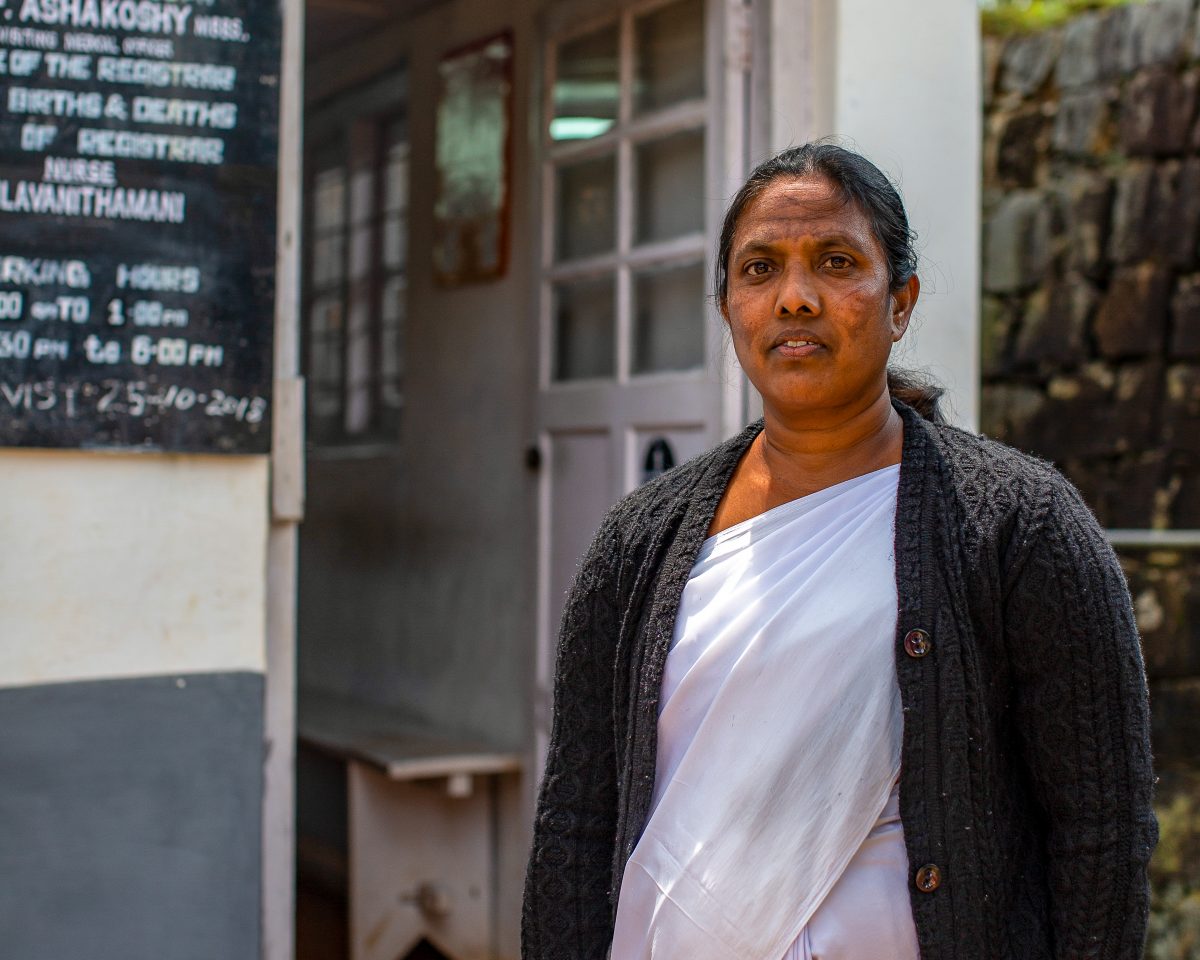
15. Sanitary products
At Welbeck, workers have used the Fairtrade Premium to pay for washable sanitary pads. These are given to girls in school for free, and available to workers for a subsidised price. As the pads are reusable, they save the workers and their families money and reduce waste.
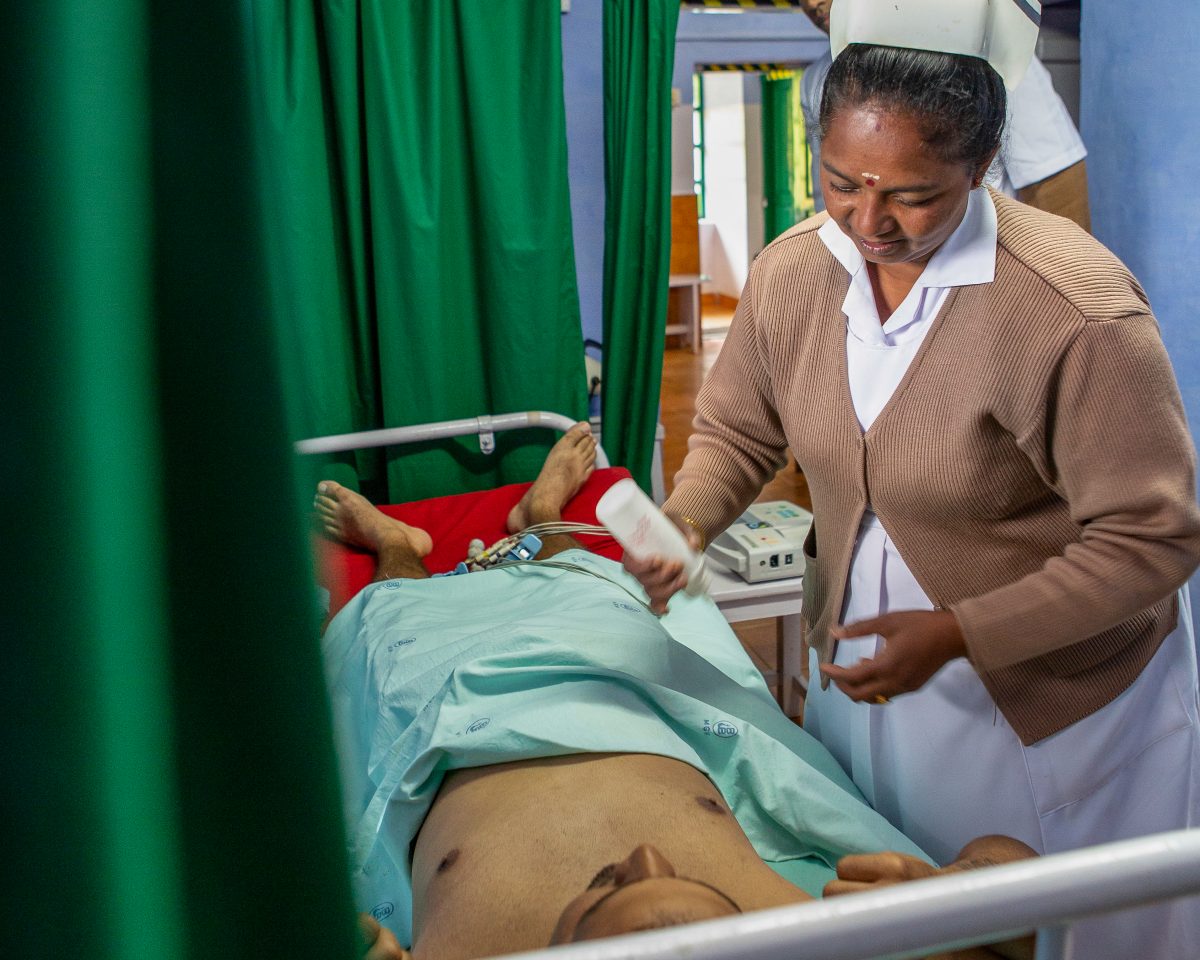
16. Electrocardiogram
The dispensary at Dunsandle is staffed by a nurse and a pharmacist, and regularly hosts a doctor to run clinics for the workers and their families. Thanks to the Fairtrade Premium, the clinic also has its own ECG machine. This enables the staff to be able to run checks on workers’ hearts. Previously they would have had to pay for this at another hospital or clinic, and so the machine saves money for workers. It is important that heart conditions are diagnosed quickly and the ECG machine means this can happen much faster than referring patients to a hospital.
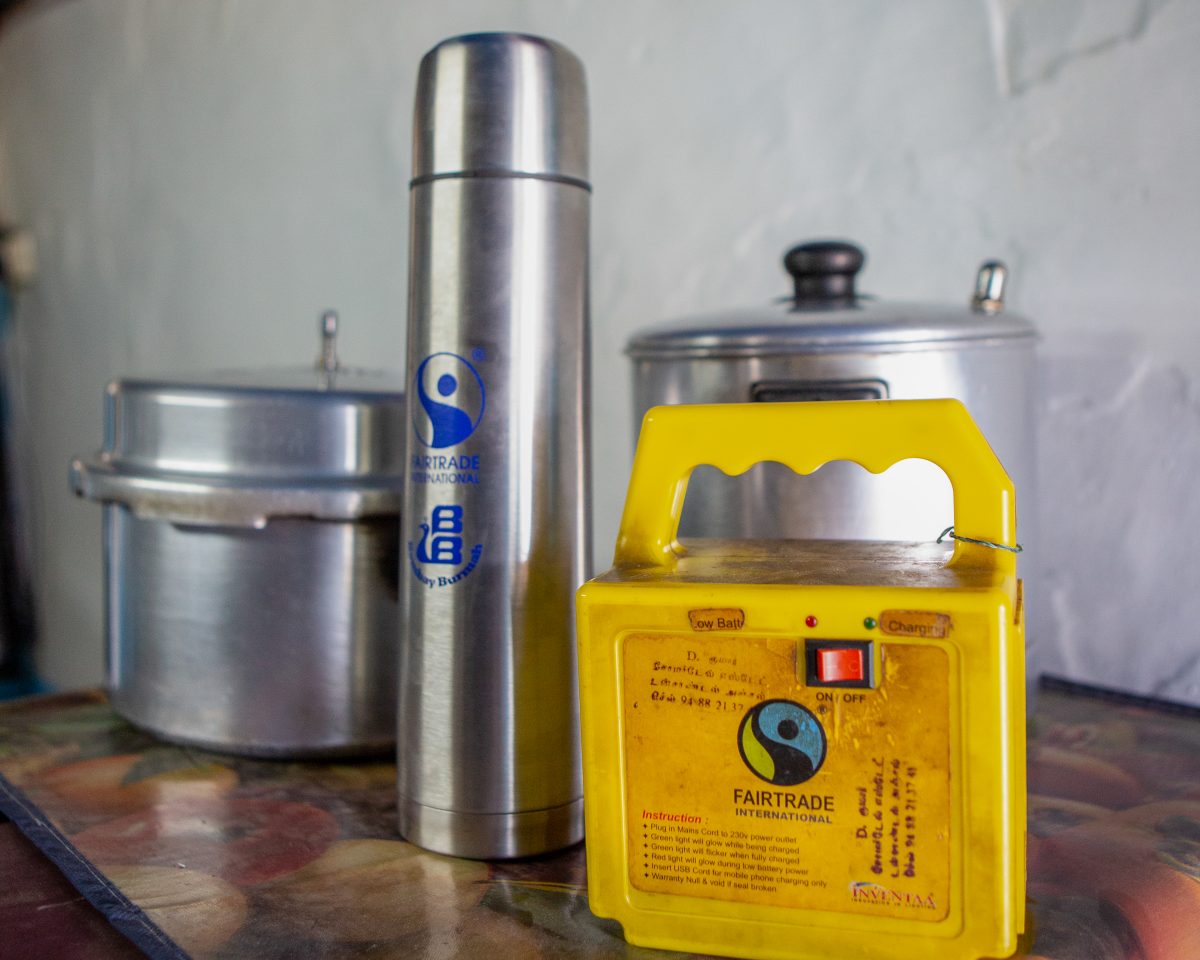
17. Rechargeable lights
The electricity supply on the Dunsandle can fluctuate, and sometimes goes off. Estate workers chose to spend some of their Fairtrade Premium on rechargeable LED lights. That means workers can finish their household tasks and children can complete their homework, even during power cuts.
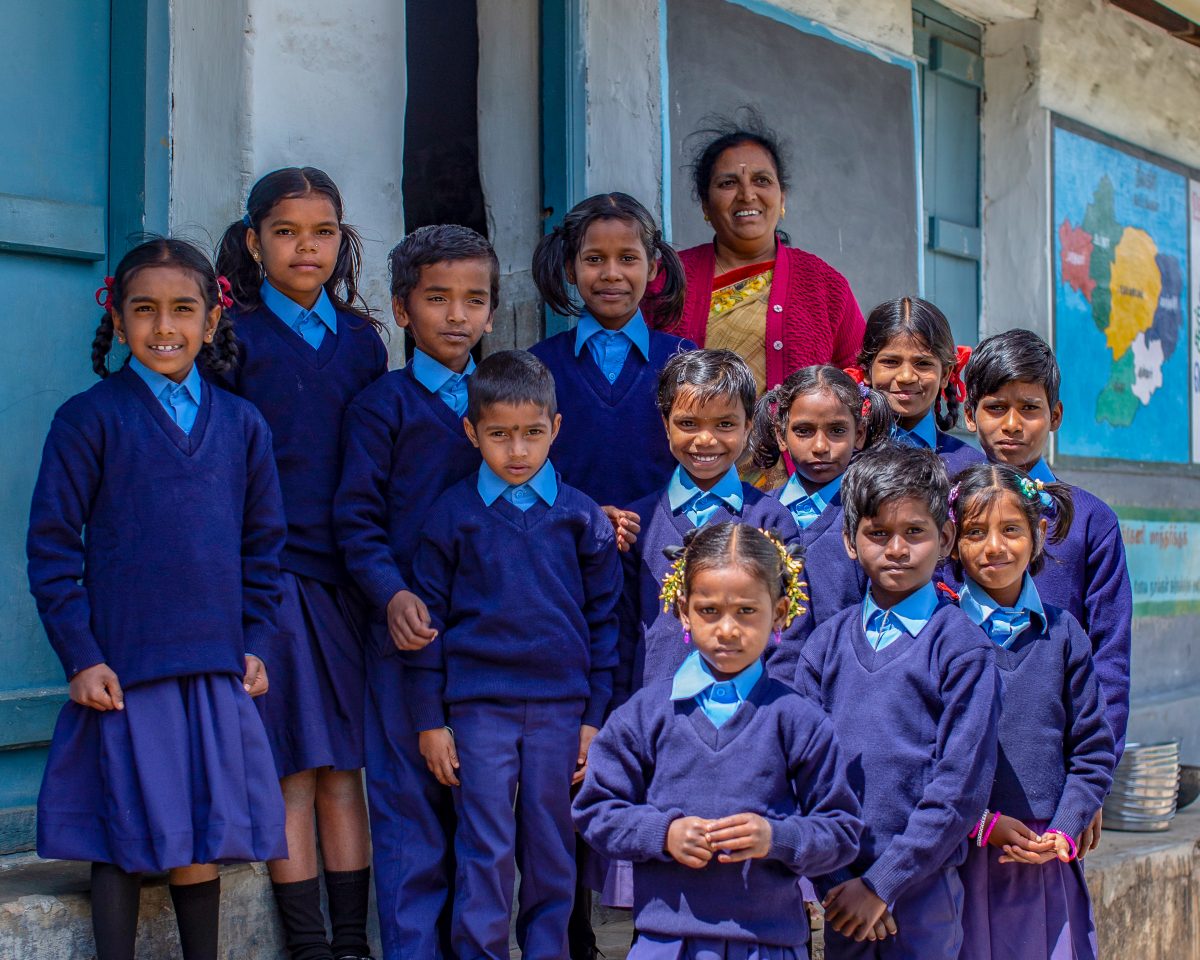
18. School uniform
School uniforms can be a significant cost for families everywhere. At Welbeck, pupils at Panchayat Union Primary School are provided with school uniform funded by the Fairtrade Premium. The free uniforms save families an estimated 2,000 rupees per year per child, the equivalent of one week’s pay for a tea plucker.
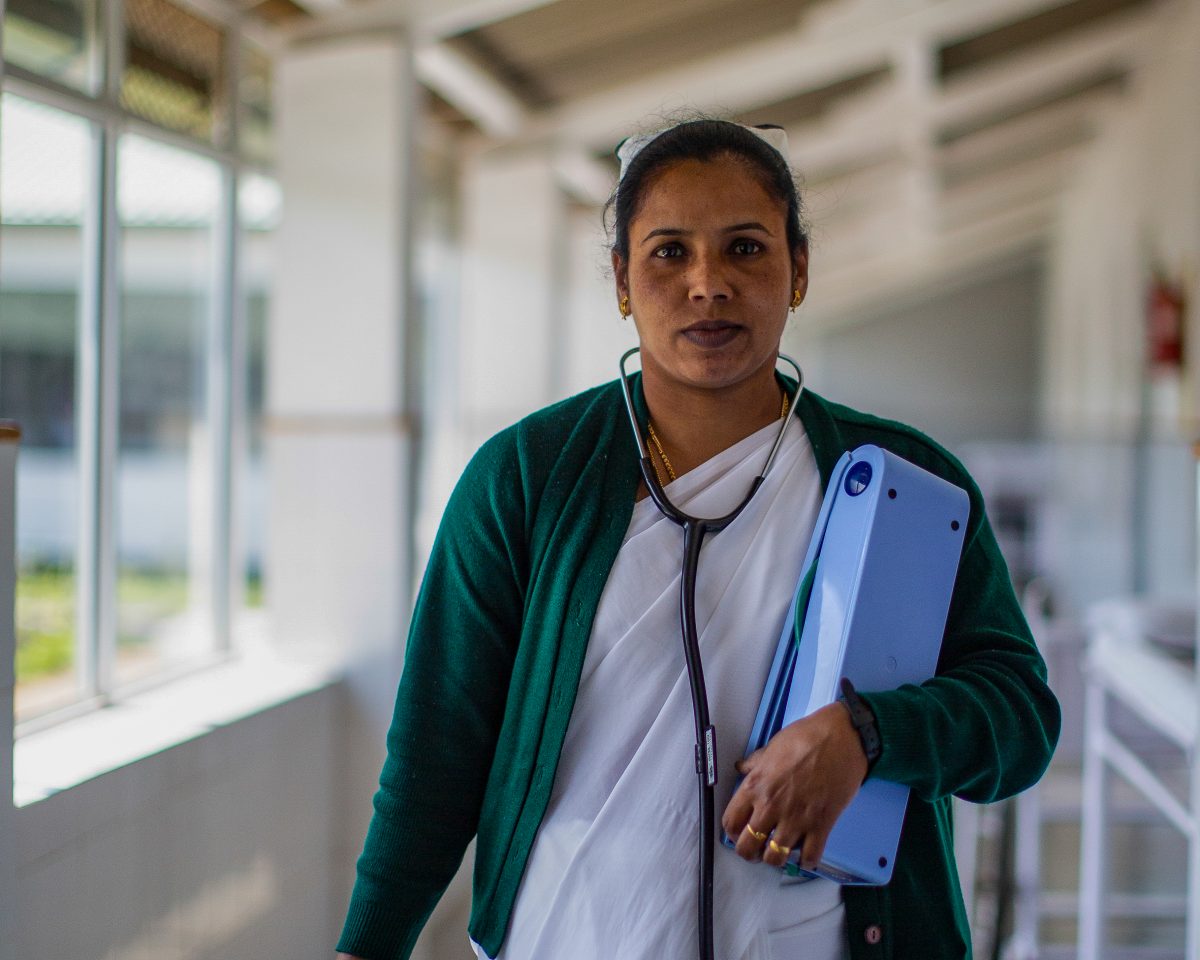
19. Vaccinations
At United Nilgiri, a vaccination programme against typhoid and hepatitis A, two waterborne diseases, has been 50 percent funded by the Fairtrade Premium. These are common infections in the area, but because of vaccinations, they are occurring less on the estates.
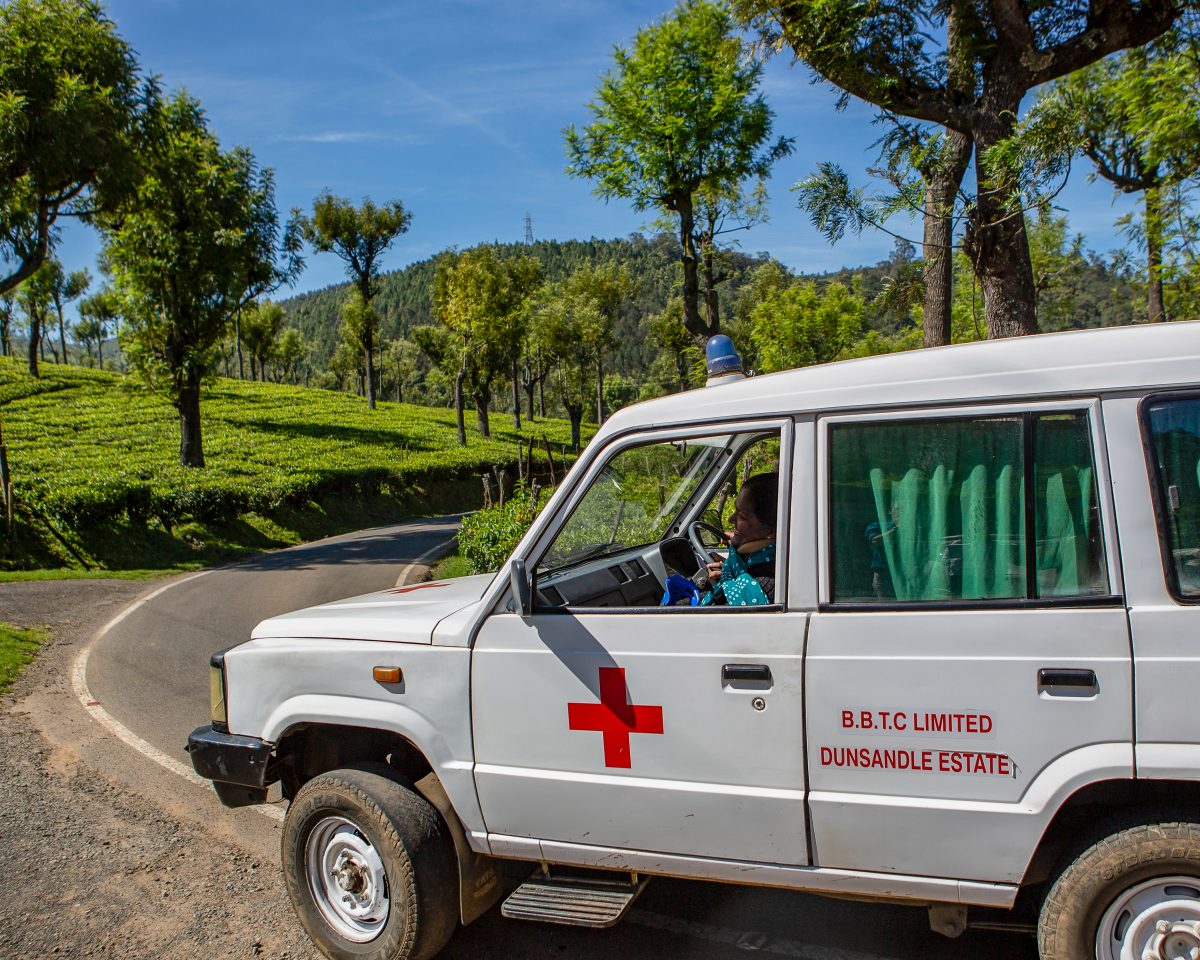
20. Running costs of ambulance
Welbeck has a permanent nurse on site and a doctor’s clinic three times a week. Workers have invested the Fairtrade Premium in many projects at the estate that provide additional health services. One of these is an ambulance and its running costs. Access to reliable and safe transport that can quickly get workers and family members to hospital is vital.
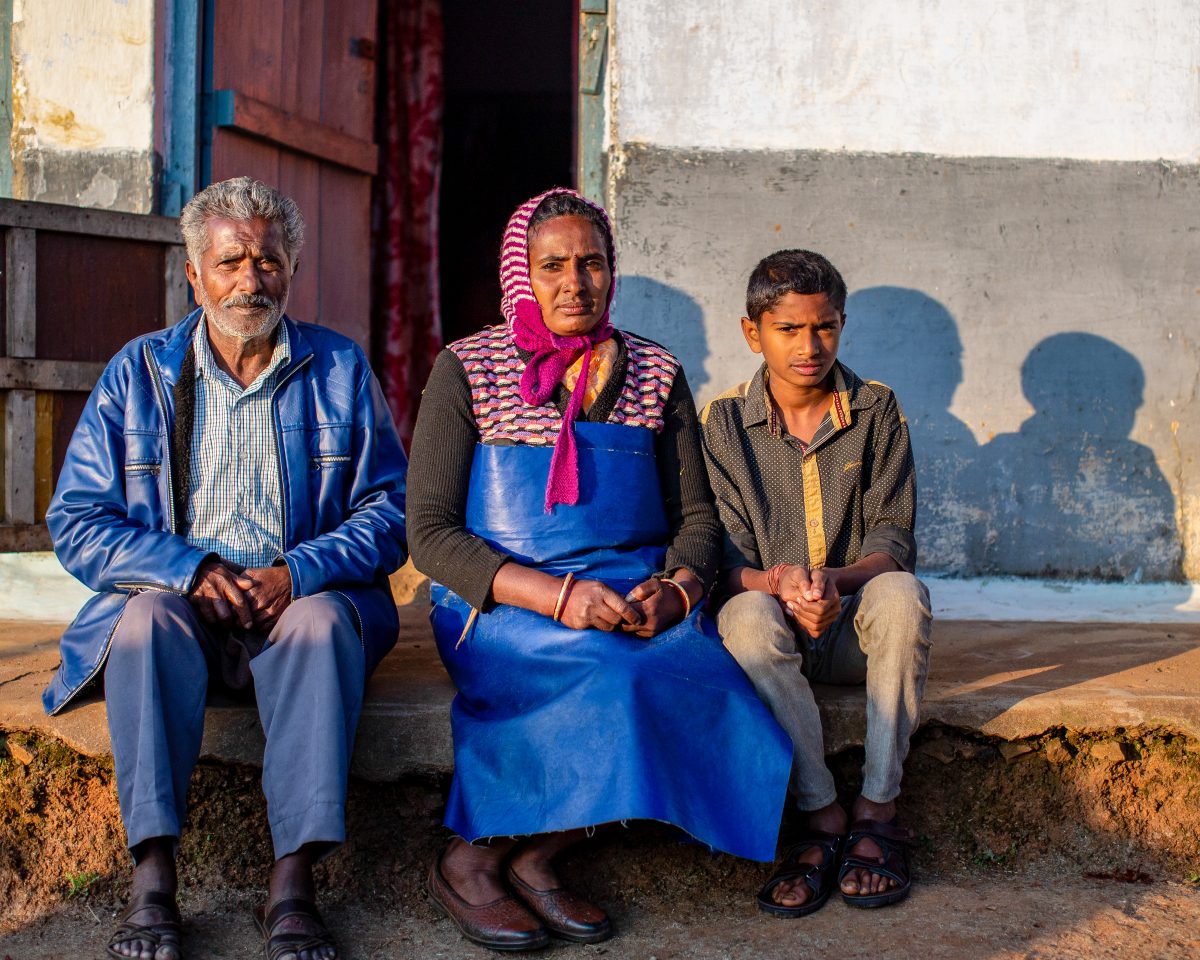
21. Death fund
The cost of a funeral can be a big worry for workers, and often the only way they can pay is to take out a loan. At Dunsandle, the Fairtrade Premium has been used to create a fund for workers’ families, so that they can meet funeral costs in the event of their death.
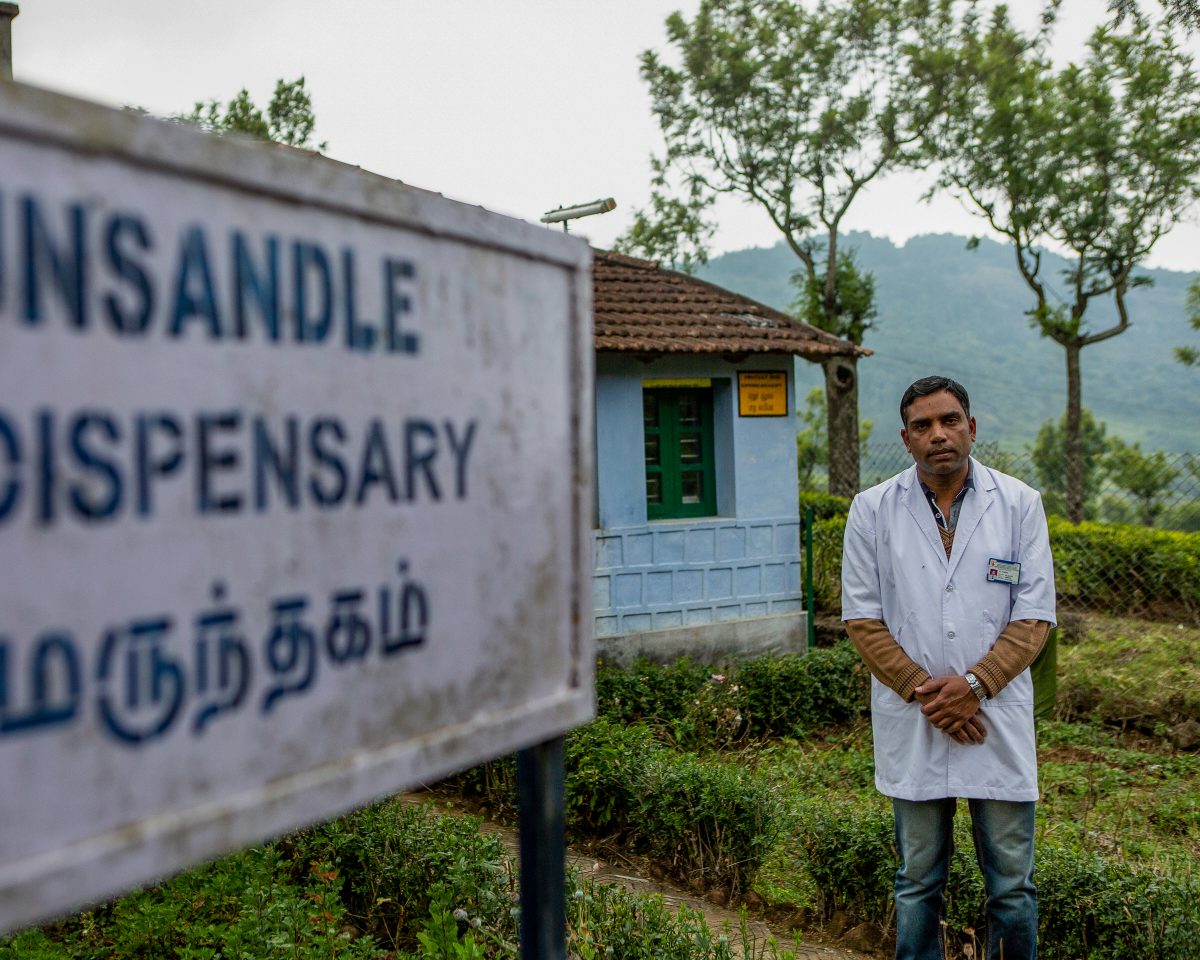
22. Fridge in the dispensary
At Dunsandle, the dispensary employs a pharmacist and a nurse, and hosts doctor’s clinics. Workers chose to use the Fairtrade Premium to buy a fridge for the dispensary, which enables them to safely keep a wider range of medicines than they were previously able, and offer treatments for more conditions on the estate.
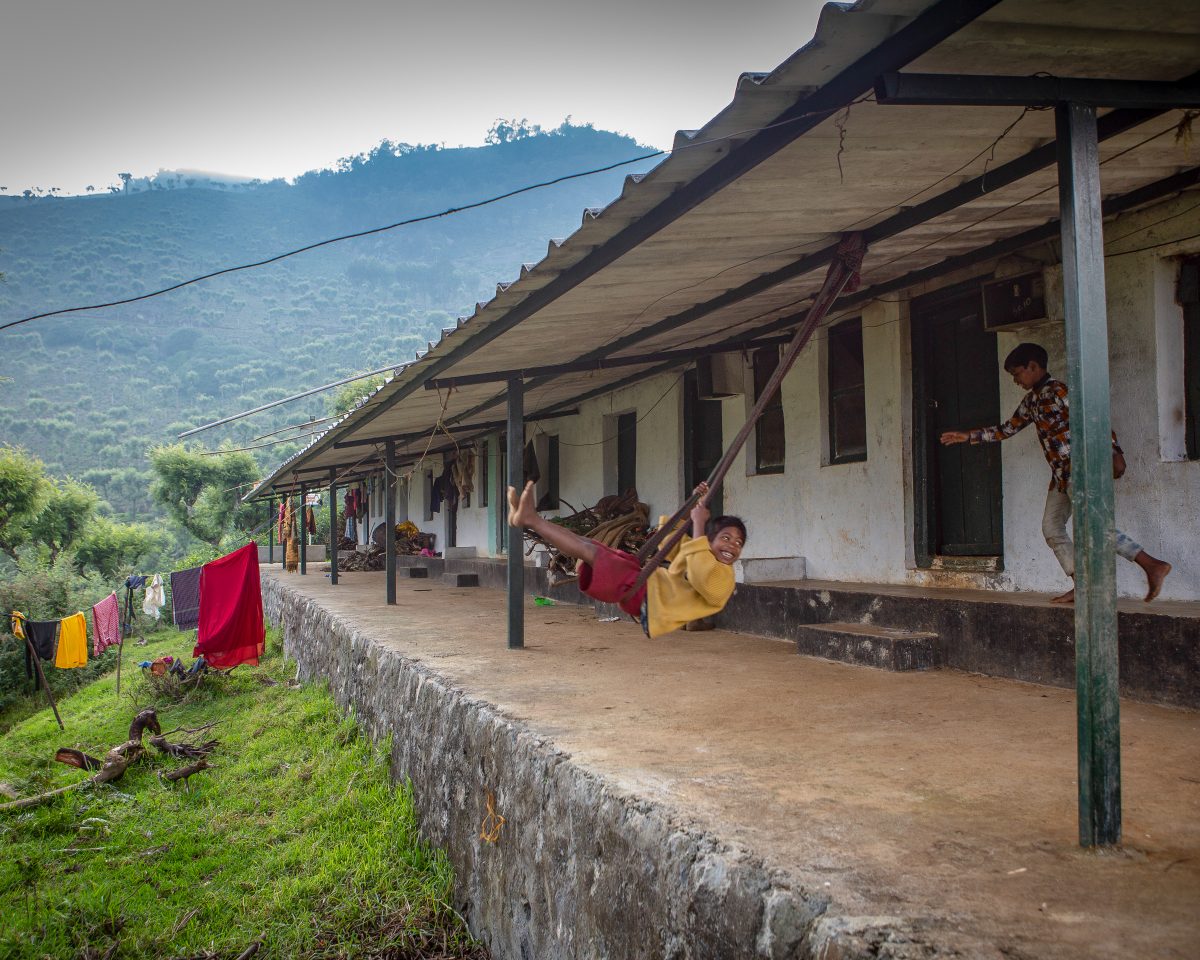
23. Teacher housing
The Sivasailam Chamraj Niketan School caters for 1,200 children, from lower kindergarten (age 3) up to 12th standard (age 18). These children live on Chamraj and Korakundah and in surrounding communities. The Fairtrade Premium has been used to fund the building of housing for teachers and their families next to the school. Many of the school’s teachers live in the housing, which means they save time and money spent travelling to homes off the estate.
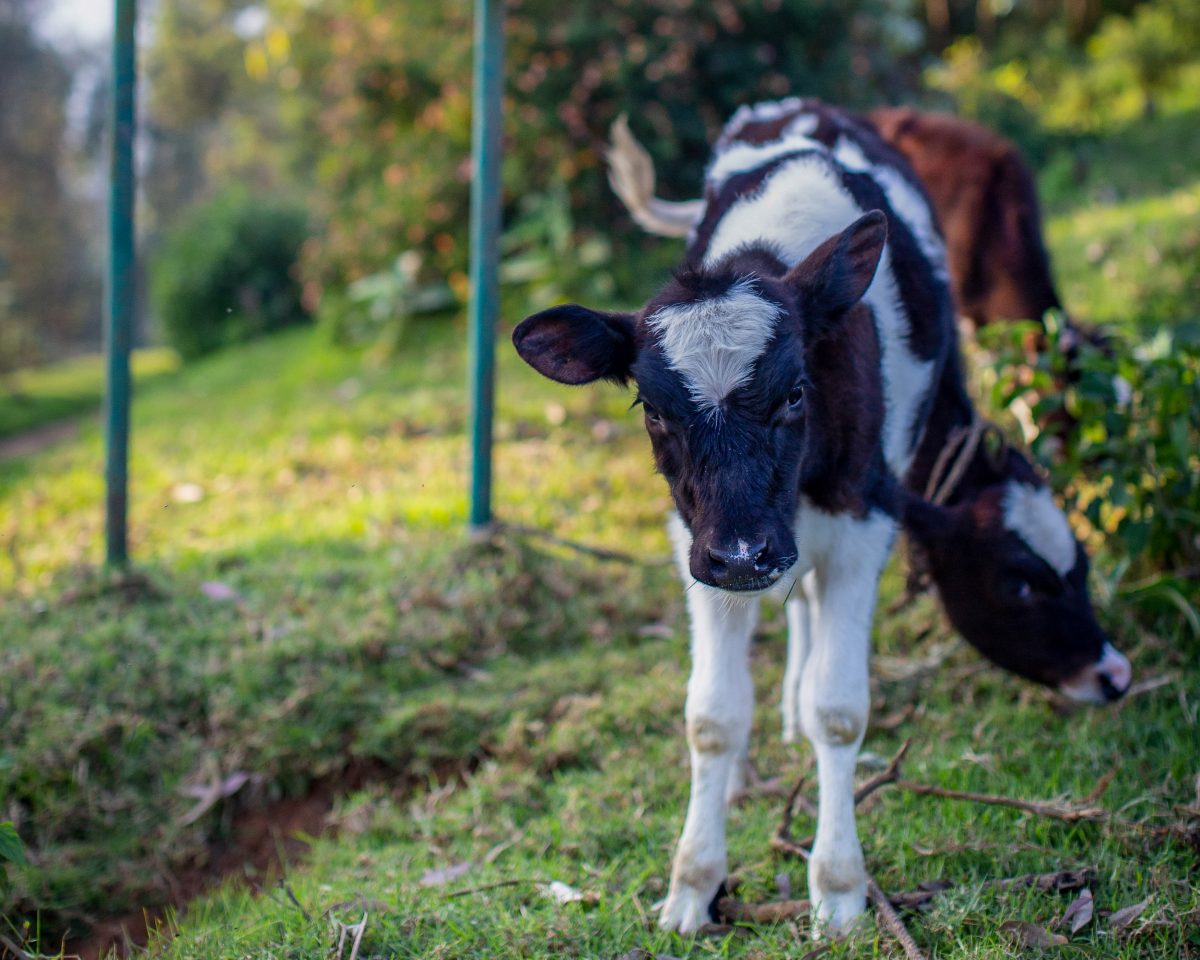
24. Cows
At Welbeck, the Fairtrade Premium is used by workers to buy cows and create another source of income besides a wage from the estate. Workers use the Fairtrade Premium to purchase a cow, they can then sell milk and manure, which is used by the estates as organic compost.
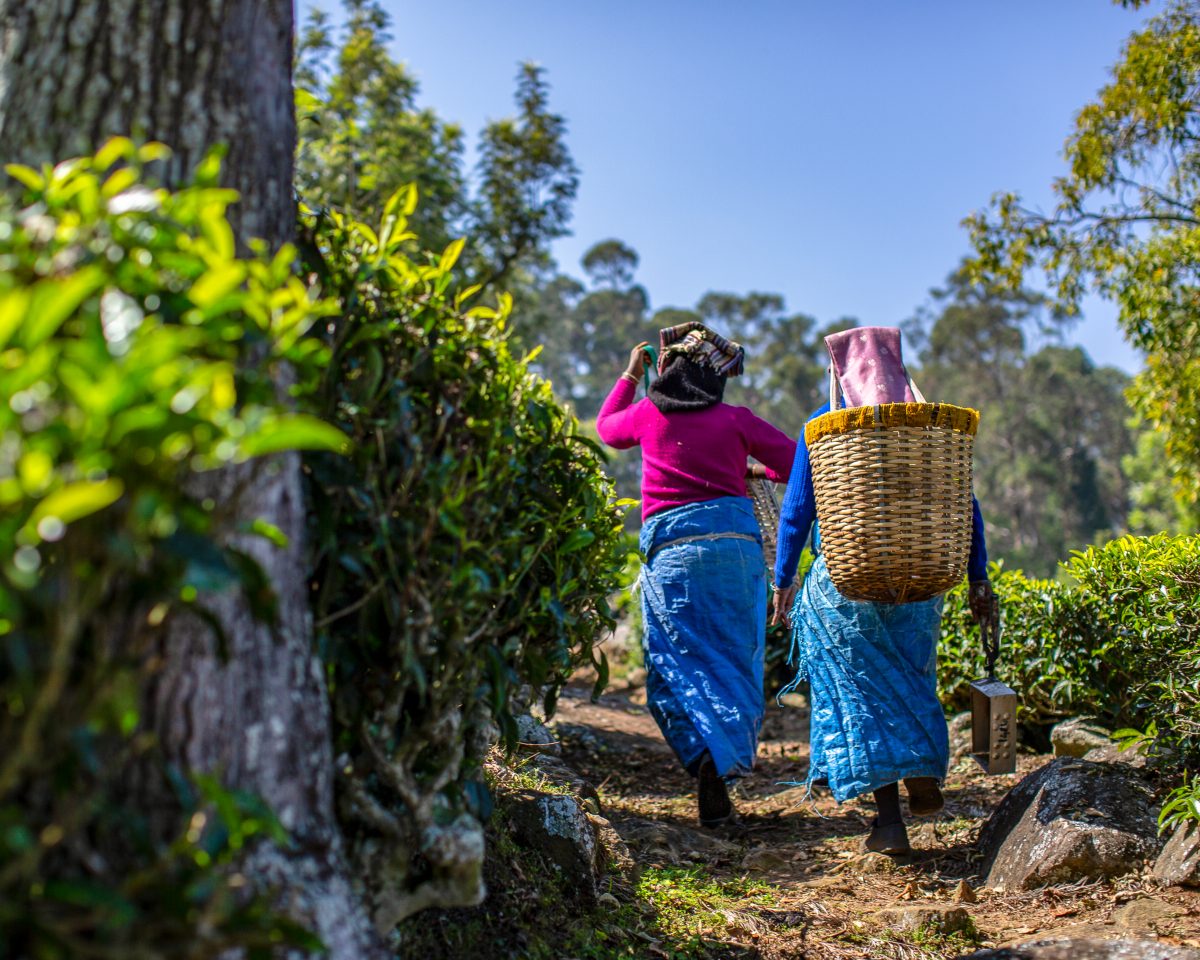
25. Raincoats
The Nilgiri Hills have two monsoon seasons per year, when it rains very heavily for much of the day. This is also the time when tea grows rapidly and needs to be plucked to prevent it becoming overgrown, and so the workers continue to work despite the rain. Workers on Dunsandle used some of their Fairtrade Premium to buy raincoats to keep them dry during the rainy season.
